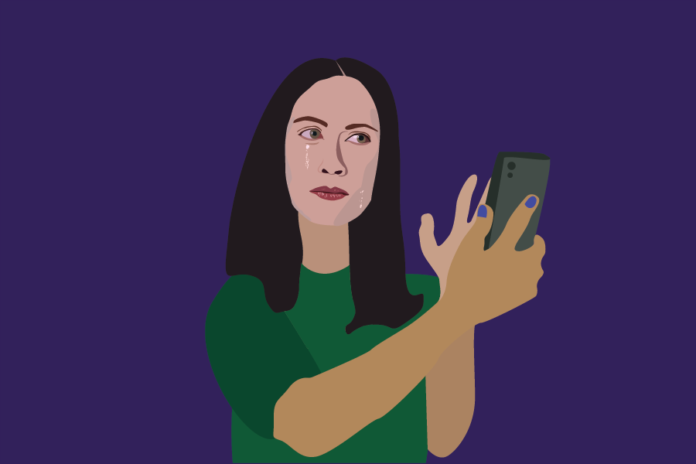One-size-fits-all solutions to mental health conditions need to stop
Whenever I choose to forgo my responsibilities and open Instagram I am greeted by one of three things: an exciting, yet impossible makeup tutorial, a picture of an old friend from middle school or posts regarding any of a few mental health conditions.
I used to ignore these mental health posts. “10 Signs of Depression” didn’t catch my eye because I didn’t feel like I had depression and “Six Things You Can do to Cope With ADHD” didn’t seem to apply to me either. These posts seemed to flit in and out of my span of attention, but I’ve noticed an increased prevalence in the past year.
Infographics have been experiencing an intense revival that began in 2020. Ever since the pandemic began, our lack of in-person contact has led users to explore different ways to interact and spread information online. The eye-catching design and simplicity of infographics was a breath of fresh air compared to the dense language of infection rates and death tolls.
One could say that having all of this information at our fingertips is beneficial. After all, there’s no harm in knowing about how mental health can manifest in our lives and how we can combat the negative effects of mental illness. There’s also something to be said about accessibility too, not everyone can afford to have an official diagnosis with a psychiatrist (one of the many qualms of the American healthcare system)—the internet can be a helpful tool in allowing people to learn about symptoms and treatments.
Social media, however, has completely botched these efforts, mainly because of the tendency for reduction and generalization in mental health posts.
There are infographics for everything from aesthetic note-taking habits to critical race theory. According to what we see on Instagram, if a concept exists, it can be condensed. This reductionism, however, can be incredibly harmful. There’s simply not enough context for these very complex conditions in a 1089-pixel frame. Mental health conditions are also not a “one size fits all” type of thing, and the information in these posts give off that feeling.
Posts that specifically outline symptoms of mental health conditions can also be very triggering. Unfortunately, the individuals who create these posts seem to follow the standard “get viral quick” method that most Instagram users try to emulate: eye-catching colors, in-your-face fonts and catchy slogans. The other day, I stumbled across a post titled “Eight Ways We Self-Sabotage.” The post was designed to look like a checklist, with statements like “telling yourself a negative story: ‘I will never be good enough,’” being paired with a cheery and affirmative checkmark. It felt like the post was a checklist of self-sabotage techniques.
The design of this post shows a complete lack of knowledge on the right way to present this information. We can criticize the content and layout of these posts all day long, but there’s something that we don’t always see on first glance: the creators. Who has decided that they’re the authority on these topics? Who decided that they were the ones to make these posts? Oftentimes, mental health accounts on Instagram are completely anonymous. There’s no personal Instagram account attached to whoever makes these posts. For all we know, it could be a random high schooler writing these posts or anyone else who’s simply not qualified.
These accounts also tend to create a sort of mental health “umbrella” in their theme. Depression, eating disorders and ADHD posts could all sit alongside each other in one row of posts. This generalization of mental health conditions is incredibly harmful by implying that all folks who suffer are the same and, therefore, can be treated the same. This just isn’t true. Mental health conditions are not a “one size fits all.” We can’t help people who suffer from these conditions if we don’t know how they are distinct from one another.
There are plenty of ways we can amend how we discuss mental health on social media. One way that I find to be particularly helpful are folks that use their accounts to reflect on their specific experiences with their mental health. Actor and podcaster Marc Maron, for example, suffered a devastating loss in the middle of the pandemic and chose to document his grief through frequent Instagram live videos. Creating a space where we can relate to each other and understand that there are unique ways to process emotions is a great way to support those who are suffering and give solace to those who are experiencing similar feelings.
The world of social media isn’t perfect, but putting a human face to a human experience without implying any sort of expertise is much more helpful than a faceless, sourceless and sans serif post.
Written by: Isabella Chuecos –– ifchuecos@ucdavis.edu
Disclaimer: The views and opinions expressed by individual columnists belong to the columnists alone and do not necessarily indicate the views and opinions held by The California Aggie.





